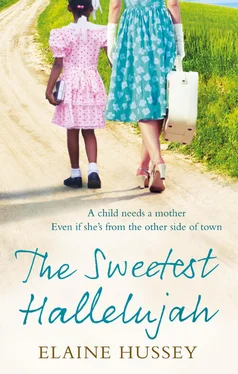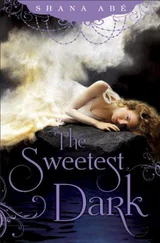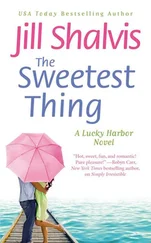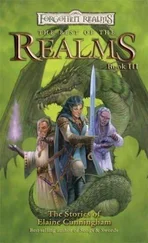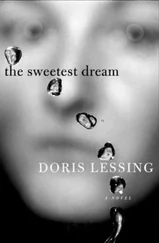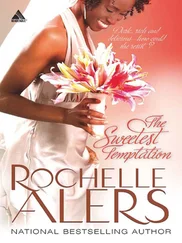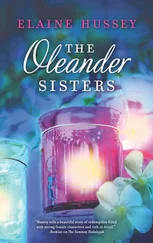ELAINE HUSSEYis a highly acclaimed and award-winning novelist who has written under the names Peggy Webb and Anna Michaels. She was born and bred in the south and is from Mississippi, where The Sweetest Hallelujah is set.
The Sweetest Hallelujah
Elaine Hussey
www.mirabooks.co.uk
In memory of my parents, Clarence and Marie Hussey,
who gave me everything.
THIS BOOK WOULD NOT have been possible without my amazing agent, Stephanie Kip Rostan at Levine Greenberg, and my remarkable editor, Erika Imranyi at Harlequin MIRA. Stephanie encouraged me to finish a story I had started more than ten years earlier, and Erika loved it enough to give it a good home. They guided me throughout the process, and I am forever grateful for their generosity and support.
The journey of my characters in this story is entirely fictional, but I would like to acknowledge the nonfiction books that gave me a better understanding of the obstacles they faced: Black Like Me , John Howard Griffin; Simeon’s Story: An Eyewitness Account of the Kidnapping of Emmett Till , Simeon Wright with Herb Boyd; Free at Last: A History of the Civil Rights Movement and Those Who Died In The Struggle , Sara Bullard; Civil Rights: Yesterday and Today , Herb Boyd, Todd Burroughs; I Have A Dream: Writings & Speeches That Changed The World , edited by James M. Washington.
My deepest gratitude also goes to The Honorable Judge Jacqueline Estes and David Sparks, Attorney at Law, for invaluable advice about adoption and for research into the amended law of 1955 that made Billie’s adoption possible.
To Jane Talbert, dear friend and former colleague at Mississippi State Univerisy, hugs and a steak dinner for helping me recall the rules that match the writing constructions.
Kudos to my research assistant, the incredible Susan E. Griffith.
The Deep South with its riches of music and food, and eccentric, outrageous, courageous people shaped this story as surely as it shaped me. I have an abiding love for my home, and I hope that shines through.
Thank you for reading. I hope you will laugh and cry at my quirky, redemption-infused story, and I promise to write more of the same.
THE DAY BILLIE’S LIFE changed, she was already knee deep in trouble.
She’d been playing with Lucy after her mama had said not to. Lucy’s little brother, Peanut, had something that was catching, but Billie wasn’t the kind of scaredy-cat who would stop seeing her best friend just because grown-ups said so.
To make sure her mama didn’t know, Billie told Peanut if he opened his trap about her being over there, she’d make him sorry he was ever born. He believed her, too. Around Shakerag, the other kids knew that if they messed with Billie she’d beat the snot out of them.
Calling out, “Bye, Lucy,” she set out for home. But the only way there was past dead Alice’s tree.
Billie hadn’t even been born when they found the body of eleven-year-old Alice Watkins up in the woods behind Gum Pond cut into six pieces. Still, she knew the stories. Everybody in Shakerag did. Somebody with a heart black as sin had snatched Alice from Tiny Jim’s juke joint right out from under her daddy’s nose. Then he’d done his dirty deeds and got clean away.
Alice was still hanging around like some avenging angel. She’d warn you when something bad was about to happen. You’d hear the harmonica in Tiny Jim’s Blues and Barbecue all over town, the sound so mournful you’d feel defeated. The smell coming from his barbecue pits got so strong you’d close your curtains and stuff towels under the door to keep the scent from driving you crazy. And if you were caught out in the street like Billie, at the mercy of winds that suddenly shook the trees and rattled the trash cans in the alley, you’d feel as if you were made of glass. One look from a stranger could crack you in two.
Billie started running. Everybody knew the boogie man got bad little girls first.
She ran as hard as she could past Tiny Jim’s juke joint and barbecue place where Alice’s arms had the longest reach. The moaning notes of the harmonica poured so loud out the door she put her hands over her ears. It wasn’t any great surprise that when something awful was afoot, blues swarmed around his place like clouds of angry locusts. Tiny Jim was dead Alice’s daddy.
Billie pumped her long skinny legs into double time. With the blues breathing down her neck, she rounded the street corner so fast she nearly tripped on a crack. She flailed her arms to regain her balance, but something even worse was up ahead—Alice moaning in the cedar tree by A.M. Strange Library. When she took up residence in a tree, the birds hushed singing. They’d leave nests shaded from the sun and safe from predators to perch on power lines where anything in the air could swoop down and carry them off. Even the squirrels gave up their high-wire acts when Alice was near.
It was a wonder Alice would even come to the library, dead or not. Mean old Miz Rupert laid down so many rules, you might as well stick your fingers out so the librarian could slap them as you walked through the door. She even acted like she owned the books. Billie only went when her mama made her.
Billie sped past the library toward the neighborhood park. Struck by a bright idea, she veered through the entrance so fast she fell and tore the right leg of her homemade shorts. Now she’d have genuine evidence she’d been playing in Carver Park like she’d said she would. Her mama would think she’d fallen right through the sliding board. It was rickety as all get out. Everybody fell through if they didn’t mind their p’s and q’s.
Billie stomped around in the sand pile till she got enough sand on her shoes to look convincing, and then she flew out of the park and up the steep hill past the Mt. Zion Baptist church.
When she cut down Maple Street, Billie did a victory jig. Home was safe. A house painted robin’s egg blue. Though she liked the color of Lucy’s house best, yellow like sunshine, she was proud of where she lived. It was the only house on the block that didn’t need painting. A neglected house ain’t nothin’ but a sign of pure dee laziness , her grandmother always said.
Everybody called her grandmother Queen, including Billie. She ruled the roost. If you walked into Queen’s house, you’d answer to her, no matter who you were. She was probably waiting behind the door now to ask Billie a gazillion questions. She’d want to know about every minute Billie hadn’t been under her watchful eye.
Lollygagging, Billie waved at Miz Quana Belle Smith watering petunias on her front porch next door.
“How’s yo sweet little mama doing, chile?” the old woman called.
“Fine, thank you, Miz Quana Belle.”
Billie couldn’t put off going inside any longer. If she stayed in the yard, Miz Quana Belle would keep her the rest of the afternoon asking foolish questions. Waving once more, Billie skipped up the steps and eased open the door.
The house smelled like lye soap and fried chicken. As if Billie needed further evidence that Queen was in the kitchen bent over an iron skillet with a dishpan of soapy water nearby, she heard Ma Perkins on the Philco radio giving her silly advice. Queen never missed an episode.
As far as Billie was concerned, the only good thing about Ma Perkins was that she might cover up the sound of a little girl who didn’t like rules, sneaking down the hall.
“Is that you, Billie?” Queen hollered.
“Yes, ma’am.” Queen would whip you if you didn’t mind your manners. And talking polite topped her manners list.
Читать дальше
